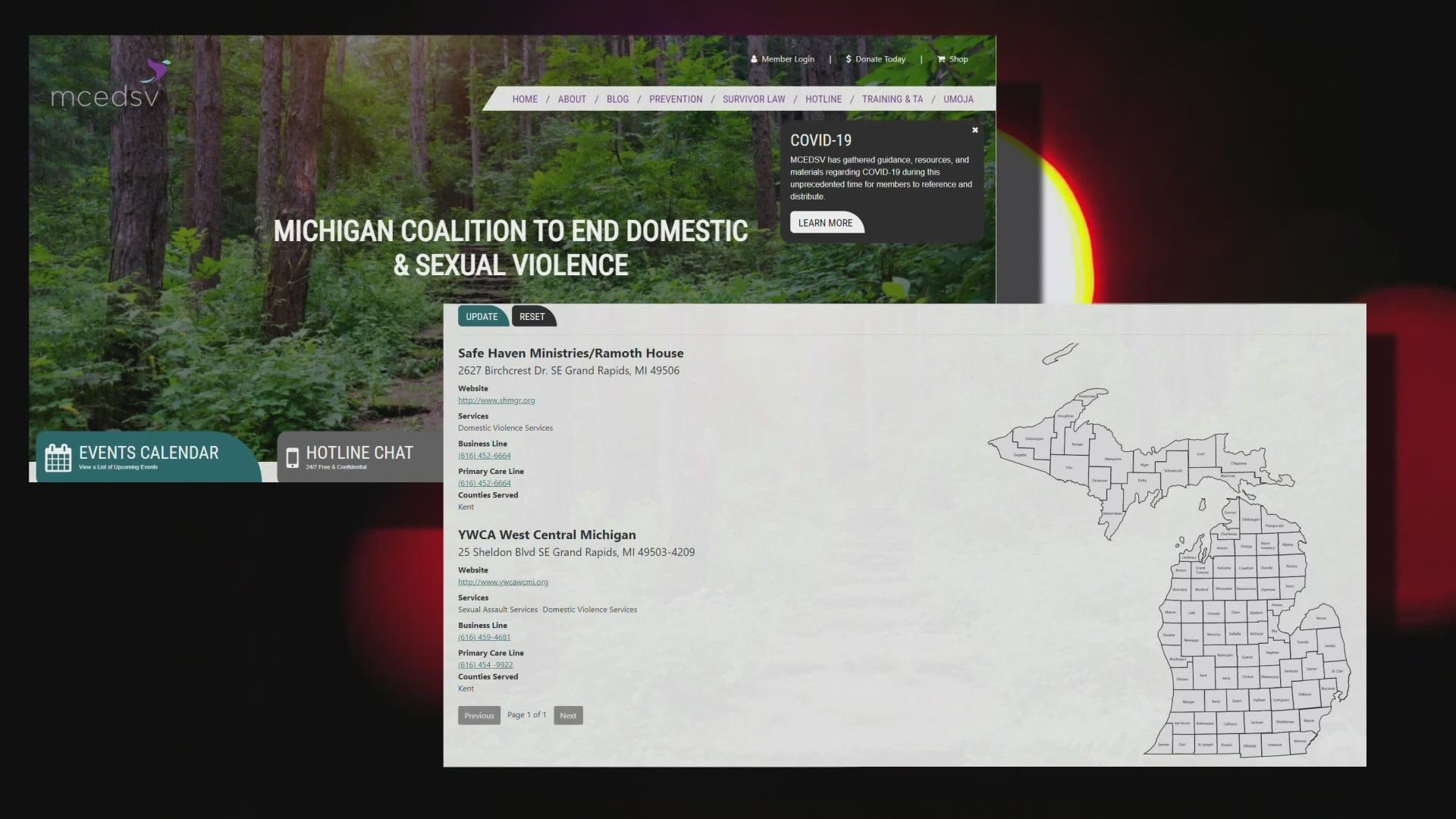Calls to domestic violence hotlines have surged during the coronavirus pandemic, and experts say the increased call volume may not fully represent the actual need.
“We’re worried it’s not reflective of what’s happening,’’ said Sarah Prout Rennie, executive director of the Michigan Coalition to End Domestic and Sexual Violence. “At a time that need is at its most, our ability to serve folks is at its lowest.’’
The coalition, which represents 73 domestic abuse shelters in Michigan, logged 1,000 calls in January. For the 2019-2020 fiscal year, it received a total of 1,250 calls.
“These calls are really indicative of a silent, endemic problem of violence that’s happening in our houses. In our communities,’’ she said. “I think it’s going to get worse.’’
Limited jail space, concerns about communal living at shelters and fear of retaliation are among myriad concerns for victims of domestic violence, Prout Rennie said.
“COVID has made everything 100% harder if you’re a victim of domestic violence,’’ she said.
Calls coming into YWCA West Central Michigan in Grand Rapids are also up, CEO Charisse Mitchell said.
“Pre-pandemic we were seeing calls about 200 in a month,’’ she said. “Those numbers started to increase. So, in the fall, we were seeing numbers as high as 400.’’
But it’s not just the call volume that stands out, Mitchell said.
“We’re seeing just a higher level of intensity in need,’’ Mitchell said. “On a call that normally would be 15 minutes, there’s such desperation that the call is lasting two hours.’’
Aside from domestic violence, callers often are weighed down with other concerns tied to the pandemic, she said.
“Lack of food, lack of computers for remote learning for school kids, no internet access. Joblessness. Can’t pay rent or mortgage. The list goes on,’’ Mitchell said. “All of those things are still ongoing for domestic violence and sexual assault survivors.’’
But not everyone needing assistance is able to call for help, especially when they are cooped up with their abuser.
“There are so many people right now that simply are not even reaching out because there isn’t a safe way to do that,’’ said Tara Aday, who works at Safe Haven Ministries, a domestic abuse shelter in Grand Rapids.
Coronavirus restrictions has resulted in fewer social contacts, such as people at work, school and church. As such, there’s less ability for victims to ask for help and less opportunity for outsiders to offer help.
“If somebody was living with their abuser, the only time they may be able to call us is the two or three minutes it takes them to take the trash out from the garage to the curb,’’ Aday said.
Coronavirus restrictions have also impacted how the criminal justice system deals with the abusers. Jails, for instance, are trying to reduce inmate populations due to COVID-19.
“I think that law enforcement is overwhelmed,’’ Prout Rennie said. “There are problems with the justice system being able to arraign folks. So, law enforcement may not have a place to put someone if they do arrest.’’
Limited jail space often means offenders are typically released on bond with a no-contact order.
“So you have these low-level offenders that are going right back into the home with the victim,’’ Aday said. “And that victim doesn’t have an out.’’
That reality is likely keeping victims from asking for help, she said.
Victims may also be wary of leaving an abusive household because they have no place else to go.
“I think there’s much more fear going into shelters right now,’’ Kent County Prosecutor Chris Becker said. “Do you want to go into shelters right now with kids, perhaps in a very closed environment with a pandemic going on?
“So, I think all those are combining to push down the numbers, yet we have more domestic violence reports this year,’’ Becker said.
Kent County prosecuted 1,300 people in 2020 for domestic violence, a slight increase from 2019. This year, about 150 cases have been filed through mid-February.
Becker said he expects more cases will come forward as pandemic restrictions are lifted and victims of abuse are able to interact more with others.
Aday agrees.
“When we’re kind of over the pandemic, that’s really when you’re going to start to see a significant surge.’’
RESOURCES:
Victims of domestic violence can call:
National Domestic Violence Hotline: (800) 799-7233
YWCA West Central Michigan: (616) 454-9922
Safe Haven Ministries: (616) 452-6664
Michigan Coalition to End Domestic and Sexual Violence: (855) 864-2374
Resilience: Advocates for Ending Violence: 800-848-5991 (English), 866-728-2131 (Spanish)
►Make it easy to keep up to date with more stories like this. Download the 13 ON YOUR SIDE app now.
Have a news tip? Email news@13onyourside.com, visit our Facebook page or Twitter. Subscribe to our YouTube channel.


